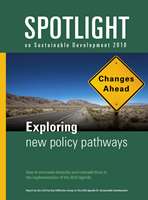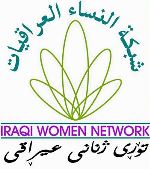Published on Wed, 2018-12-26 11:40
Around 40 protesters were shot dead, dozens were injured by live fire used as well as tear gas and rubber bullets in Sudan in one week of demonstrations. The protests started on December 19th, in the northern Sudanese city of Atbara, spread to many other cities and reached to the capital Khartoum. Sudanese government response to these protests has been excessive use of force, arbitrary arrests and detention. Chants calling for President Omar Al-Bashir to step down reflect people’s voices of frustration for the dire economic and social conditions, social injustices and widespread corruption. |
Published on Thu, 2018-12-06 18:37
For about 12 hours there was a target on education financing in what was about to become the 2030 Agenda. It was proposed in the very last round of negotiations of the Open Working Group on Sustainable Development Goals and it did not take long before it was shot down; Member States said it was not feasible to prescribe percentages of public spending to the different goals, and that it would place the goals in competition with each other. Subsequent Financing for Development negotiations saw Member States reject the proposed commitment to “setting nationally appropriate spending targets on essential services, including education…”, shocking the Norwegian co-facilitator, who said he thought education financing was uncontroversial. Yet, at the end of the MDG era, it was clear that the lack of financing was one of the main reasons behind lagging progress in achieving universal primary education. Aid to education has dropped many years in a row, amounting to 6.9 percent in 2015, and only 2.7 percent of humanitarian aid is directed to education. |
Published on Thu, 2018-12-06 18:25
Iraqi Women Network proposes to Iraqi leadership the creation of the National Council for Women’s Empowerment, as an independent national mechanism for women’s affairs in Iraq. The proposal was discussed with the President Barham Saleh. Since long time, Iraqi Women Network has been advocating to create an active partnership between various state authorities and along with CSO’s, media and gender studies and research centres to improve the status of women in Iraq and increase the role of women in realising stability, security, peace building, justice and development. |
Published on Tue, 2018-12-04 09:30
Major developed countries on Saturday succeeded in foisting, in the final G20 Leaders' Declaration from Buenos Aires, "reforms" at the World Trade Organization ostensibly to salvage the multilateral trading system from "falling short of its objectives", trade envoys told SUNS. Despite the writing on the wall that the multilateral trading system is being subjected to trade wars launched by the United States for pursuing its "America First" trade policies, the G20 Sherpas meekly agreed to the US demand to shift the blame for the current crisis in global trade to the multilateral trading system and the WTO, said a trade envoy, who asked not to be quoted. During the crucial negotiations among the Sherpas of the 19-member G20 in Buenos Aires on 30 November, the developing countries, especially South Africa and India among others, resisted the use of the term "reforms" at the WTO, and its negative effects on the developing and poorest countries, said a trade envoy, who asked not to be quoted. |
Published on Wed, 2018-11-21 10:29
Food is the axis of the civil society report on the SDGs in Nepal, where “transnational corporations are grabbing land, monopolizing seeds and food markets, and marginalizing small holder farmers more”. As visible evidence, “now in Nepal packed foods are common not only in the urban townships but also in remote and hard to reach areas, replacing indigenous food consumption patterns. Farmers rely heavily on seed markets rather than preserving their own seeds, which was common practices in Nepal even a few years back.” Food quality is degrading as farmers are using chemical pesticides and fertilizers. This creates health problems, and even when food availability has improved, the supply is inadequate to meet the surging food demand. Cereal import dependency has been rising, while Nepal's capacity to export food has been falling. This can also be linked with the huge out-migration among youth for work in foreign lands in the absence of opportunities in the country. |
SUSCRIBE TO OUR NEWSLETTER







